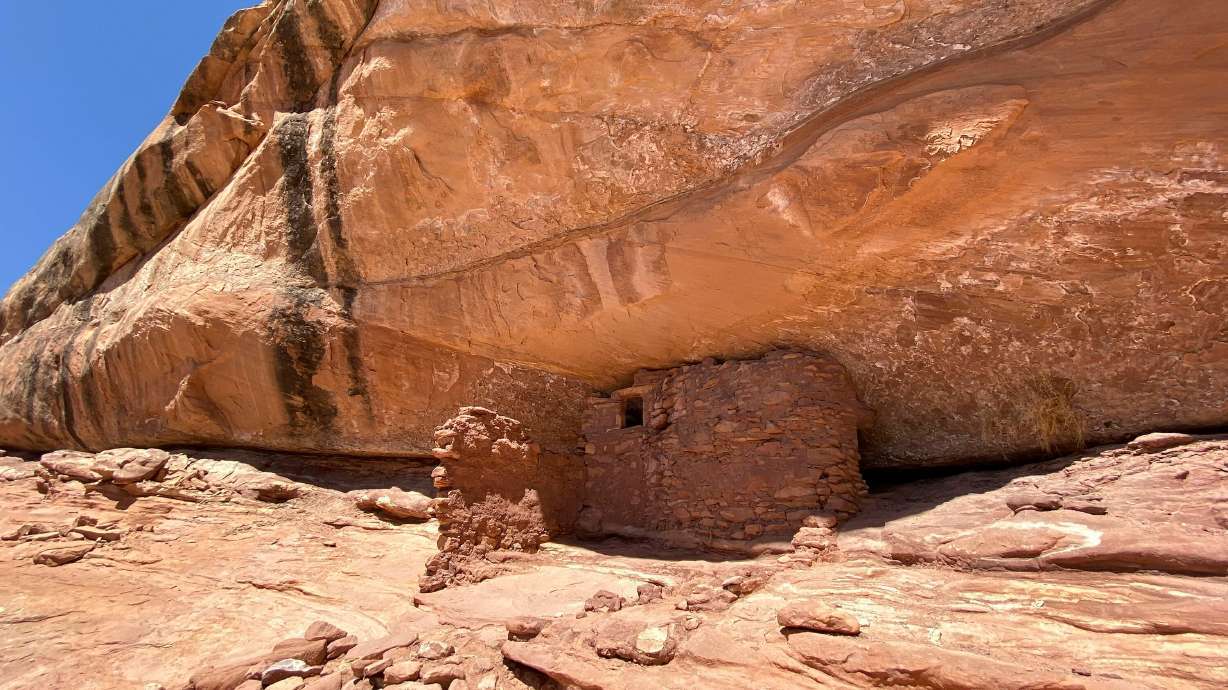Estimated read time: 4-5 minutes
- Utah Rep. Celeste Maloy proposes a bill to amend the Antiquities Act, transferring national monument designation power from the president to Congress.
- Maloy argues this change would restore transparency and balance between Congress and the executive branch.
- Conservation groups oppose the bill, citing strong public support for presidential authority in protecting national monuments.
SALT LAKE CITY — A Utah congresswoman is taking on the century-old law that created national monuments, as a pair of monuments in the state are expected to return to the spotlight once President-elect Donald Trump is sworn in on Monday.
Reps. Celeste Maloy, R-Utah, and Mark Amodei, R-Nev., introduced a bill Thursday that would amend the Antiquities Act of 1906 by removing presidential authority to designate national monuments, instead giving that power to Congress.
"Congress, not the executive branch, has jurisdiction to make decisions on public land," Maloy said in a statement.
Maloy and Amodei's bill, the Ending Presidential Overreach on Public Lands Act, would specifically remove Section 2 from the Antiquities Act. The section states that the U.S. president is authorized "in his discretion" to "declare by public proclamation historic landmarks, historic and prehistoric structures and other objects of historic or scientific interest" within land owned or controlled by the U.S. government.
The proposed law would replace the section with a brief notice that the establishment or extension of a national monument "may be undertaken only by express authorization of Congress."
"Congress trusted presidents with a narrow authority to declare national monuments in the Antiquities Act. Unfortunately, presidents have continued to abuse that narrow authority to designate millions of acres of land in Utah and across the West without proper congressional oversight," Maloy added. "My bill aims to rebalance the powers between Congress and the executive branch and restore transparency and accountability to these designations."
National monuments in Utah have been at the center of the last three presidential terms and figure to return to the spotlight once Trump takes office.
President Barack Obama designated Bears Ears National Monument in 2016, before Trump — in his first term — shrank both it and the Grand Staircase-Escalante National Monument a year later. President Joe Biden ultimately restored both of the monuments' initial sizes in 2021, but it seems likely that both will face additional adjustments in the future.
Gov. Spencer Cox said Thursday that he supports again reducing the size of Bears Ears National Monument, when asked about it during his monthly briefing with Utah reporters. He mentioned that while describing Trump's pick for secretary of the Interior, former North Dakota Gov. Doug Burgum, as the "single best decision" that Trump has made to this point.
"I think he's going to be a big help when it comes to public lands issues," Cox said.
National monuments were brought up during Burgum's confirmation hearing on Thursday, as Republican Utah Sen. Mike Lee pressed him about the issue. He didn't say much about plans for the two Utah monuments, but he pointed out that the Antiquities Act "states very clearly" that monuments are meant to be for the "smallest possible area" needed to protect the object. He also said he believes the act was aimed to offer "Indiana Jones-type archeological protections."
Courts, however, have found the law's language to be vague.
A federal judge ruled against Utah in 2023 when the state sued Biden's administration over the reestablishment of Bears Ears and Grand Staircase-Escalante national monuments. In his decision to dismiss the case, U.S. District Judge David Nuffer pointed to the section of the law that stated it was up to the "president's discretion," adding that it isn't clear what "smallest" means.
Nuffer pointed to many other attempts that have also reaffirmed the law in his ruling. The proposed amendment would tackle that part of the law.
"This legislation overturns years of a one-sided approach on major land management decisions and ensures Western communities are given a seat at the table for any future monument designations," Amodei added.
Multiple conservation groups, on the other hand, argue that it would be detrimental to protecting popular public lands. Aaron Weiss, deputy director of the Center for Western Priorities, called Maloy and Amodei's bill an "egregious attack" on a law created to protect the country's "most iconic landscapes," including several sites in Utah.
"National monuments enjoy broad bipartisan support and are overwhelmingly popular with Utahns and Americans. Unfortunately, just days into a new Congress, Utah politicians have renewed their long-running attacks on one of the most important and successful conservation tools," added Travis Hammill, the Washington, D.C., director for the Southern Utah Wilderness Alliance.
The updates come days after another group, the Grand Canyon Trust, released the results of a poll that found 75% of Utah voters support a president's ability to protect public lands as national monuments, and 65% support the current sizes of Bears Ears and Grand Staircase-Escalante national monuments.
Organization officials said support for both areas to retain monument status remained at over 60% across all political demographics among the 500 people surveyed across the state.









